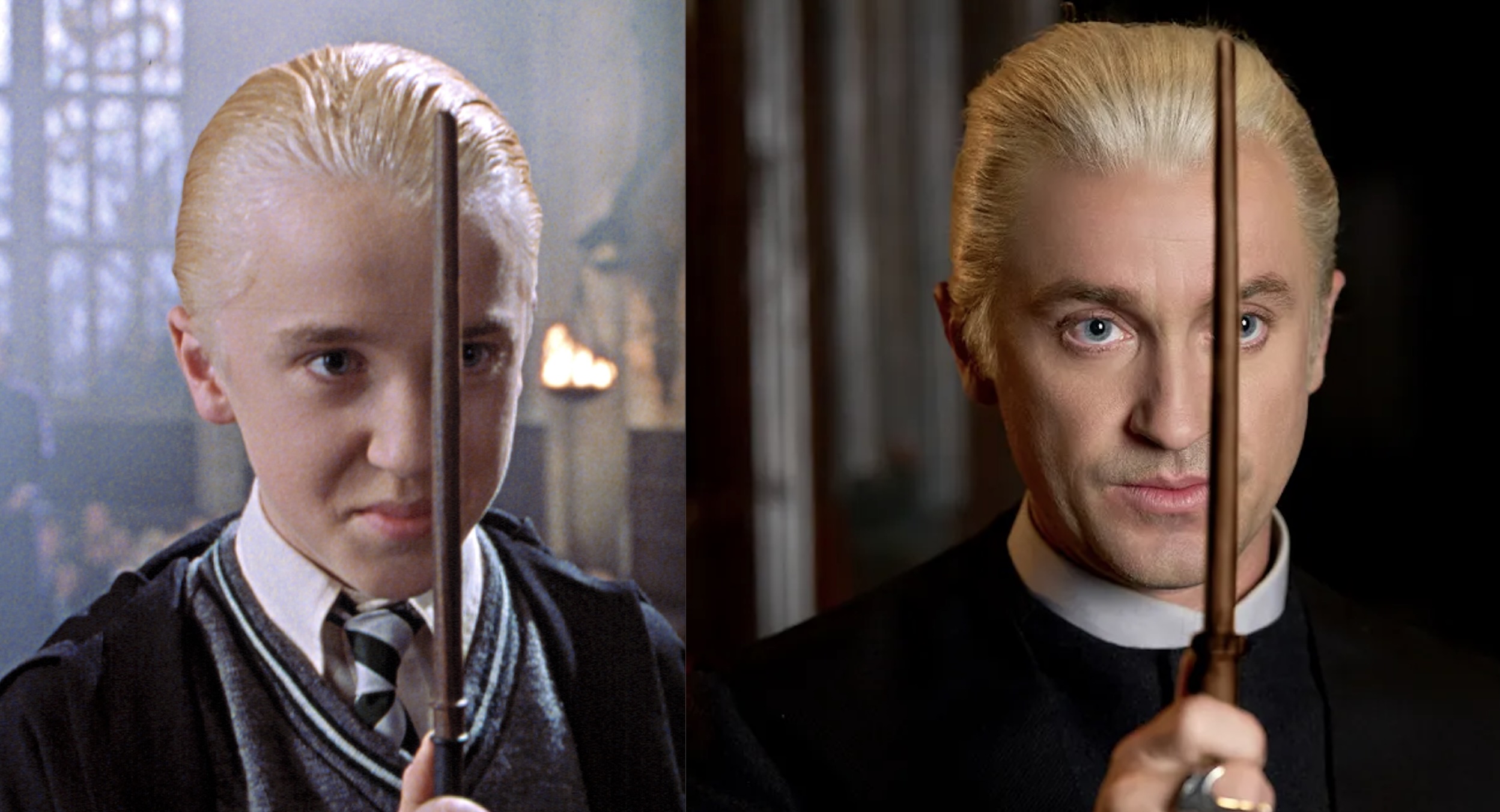Polish director Jan Komasa might be best known in the United States for his 2019 Oscar-nominated film, *Corpus Christi*, but his biggest box office success was in Poland with his 2014 film *Warsaw 44*. That film centers on the Warsaw Uprising, the bloody effort by the Polish resistance to expel the occupying German army from Warsaw toward the end of World War II.
Komasa is intimately familiar with authoritarianism in its most flagrant and brutal forms. However, his new film *Anniversary* imagines a scenario in which fascism doesn’t stomp in jackboots but creeps in quietly—pretty and ladylike, on kitten-heeled feet. More than anything, it’s a thought experiment drawn from a story by Komasa and Lori Rosene-Gambino, who also wrote the screenplay.
*Anniversary* maps five years in the life and eventual obliteration of an American family, serving as a microcosm of a larger, rapid political evolution that turns suburban utopia dystopian with dizzying speed.
Meet the Taylors.
We first get to know them through various reunions and celebrations, beginning with an anniversary party for Ellen (Diane Lane) and Paul (Kyle Chandler). Ellen is a professor at Georgetown University and a public intellectual caught up in the university culture wars. Paul is a chef. Together, they have four children whom they dote on: Cynthia (Zoey Deutch), an environmental lawyer; Anna (Madeleine Brewer), a provocative comedian; Birdie (Mckenna Grace), a high school science nerd; and Josh (Dylan O’Brien), a nebbishy, struggling writer.
The camera knits the family together in long swirling shots of their idyllic backyard.
At this party, Josh brings home a new girlfriend, Liz (Phoebe Dynevor), who is carefully coiffed and poised. She is immaculately presented and mannered, though her perfection makes his sisters uneasy. After the introductions, Liz and Ellen share a quiet, awkward moment. It turns out Liz was one of Ellen’s former students and wrote a thesis that scandalized the professor. Ellen describes the thesis as having “radical anti-Democratic sentiments,” advocating for a single-party system. The title? *The Change*.
Liz claims she “came here with the best of intentions” and that she and Josh were introduced by their shared agent. Nevertheless, Ellen remains suspicious—and with good reason. Despite Liz’s mild-mannered and quiet demeanor, her ideas are anything but benign. During a hug, she whispers to Ellen, “I used to be afraid of you but I don’t think I am anymore.”
That chilling statement becomes all the more clear when Liz sends Ellen a copy of her newly published book, *The Change*, dedicated “to the haters, the doubters, and the academic stranglers.”
Two years later, the change is officially underway.
Liz is now a celebrity working with a mysterious organization called the Cumberland Company. She and Josh are married, pregnant with twins, and Josh has undergone a conservative transformation. New flags begin to appear in the Taylors’ well-heeled neighborhood, and the social fabric shifts in ways that increasingly unsettle Ellen. She is uncomfortable and enraged. Yet, in the spirit of politeness and family unity, she acquiesces to Paul’s desire for a peaceful family Thanksgiving, despite significant political differences.
Herein lies what might be *Anniversary*’s biggest warning: don’t let the fox into the henhouse, even if it seems rude not to.
Ellen keeps a wary distance and skepticism toward Liz. Paul’s fatal flaw is his assumption of good faith. He hasn’t even bothered reading *The Change* because, frankly, he doesn’t want to know. Meanwhile, Liz attaches herself to Josh like a parasite, perhaps as an act of revenge on her former professor. As Liz’s influence grows, the other Taylor children also fall, even as the nation undergoes a radical transformation beneath their feet.
Some viewers might find *Anniversary* vague about Liz’s precise political stance that makes her so powerful and repugnant to Ellen. Liz advocates for a “single party system” under the guise of “solidarity,” which leads to an autocratic surveillance state that suppresses free speech, upheld by a violent paramilitary police force.
The film doesn’t delve into specifics, perhaps because the core ideology of fascism is simply the concentration of power. *Anniversary* suggests that the rhetoric doesn’t ultimately matter—what matters is how easily we turn on each other, with humanity and freedom crushed under the weight of such a regime.
It’s notable that recent cultural works wrestling with contemporary sociopolitical issues often feminize the threat. For example, consider the #MeToo cancel culture fable *Tár* or this year’s academia scandal film *After the Hunt*. Similarly, *Anniversary* situates a nonthreatening woman as the vessel for such evil, even as Liz’s male host, Josh, starts to embody the most extreme outcomes of what she has set in motion.
*Anniversary* is a deeply nihilistic film. It shouldn’t be described as a simple cautionary tale—the horse has already left the barn. Instead, it poses a hypothetical question through character study, examining how such a system takes hold. It asserts that a regime like this shows no mercy, not even to its most loyal subjects, regardless of what they want to believe.
— Katie Walsh, Tribune News Service
https://www.chicagotribune.com/2025/10/30/review-anniversary-diane-lane/



